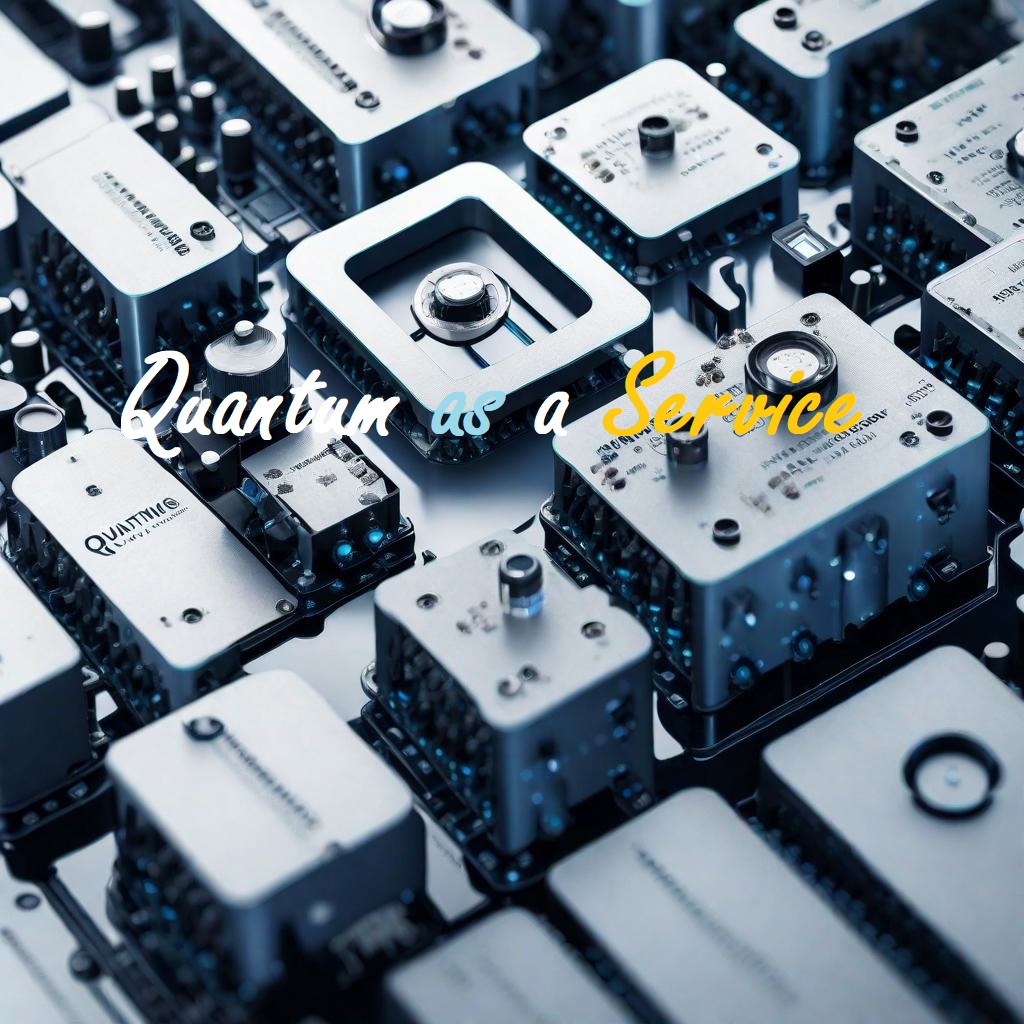Quantum computing, once a concept confined to research laboratories and academic discussions, is quickly moving into the mainstream. This shift is driven by the growing adoption of Quantum as a Service (QaaS), an emerging model that allows businesses and researchers to access quantum computing resources without owning or maintaining physical quantum computers. This article explores the concept of QaaS, its benefits, key players, and the impact it might have on various industries.
Table of Contents
Understanding Quantum Computing. 1
The Rise of Quantum as a Service. 1
Key Players in the QaaS Landscape. 3
Applications and Benefits of QaaS. 3
Top 10 quantum as a service companies. 4
Understanding Quantum Computing
Quantum computing relies on the principles of quantum mechanics, which describe the behavior of particles at the atomic and subatomic levels. Unlike classical computing, which uses bits to represent binary states (0s and 1s), quantum computing uses quantum bits or qubits. Qubits can exist in multiple states simultaneously due to a property known as superposition, allowing quantum computers to process complex calculations exponentially faster than classical computers. Additionally, qubits can exhibit entanglement, where the state of one qubit is directly linked to the state of another, even if they are physically separated.
The unique capabilities of quantum computing promise to revolutionize various industries, from cryptography and cybersecurity to drug discovery and optimization problems. However, quantum computers are costly to build, maintain, and operate, which has traditionally limited their accessibility to large corporations and academic institutions.

The Rise of Quantum as a Service
Quantum as a Service (QaaS) addresses these challenges by offering on-demand access to quantum computing resources via the cloud. This model allows organizations of all sizes to leverage quantum computing without the need for significant capital investment in hardware or specialized expertise. QaaS providers maintain the quantum infrastructure and offer platforms through which users can develop, test, and run quantum algorithms.
One of the primary advantages of QaaS is its scalability. Users can access quantum computing resources as needed, scaling up or down based on their project requirements. This flexibility makes QaaS an attractive option for businesses exploring quantum computing applications or conducting quantum research without committing to a full-scale quantum infrastructure.
According to Ollie O’Donoghue, Senior Director at Cognizant Research, the realisation of accessing actual quantum computers is what’s evolving. Oxford Quantum Circuits, a firm that provides cloud access to its quantum computers in Europe via a private cloud and its cooperation with AWS, is one noteworthy example.
Company executives understand that in the years to come, quantum computing is probably going to become a major enterprise technology. Quantum, for instance, will be crucial to life sciences attempts to find novel pharmaceuticals, and financial institutions may use it to better collateral management and hence improve money management.
To achieve these breakthroughs, forward-thinking companies will want to start experimenting and building their internal skills. For this reason, O’Donoghue thinks the
Quantum as a help (QaaS) is a cloud administration that furnishes clients with admittance to quantum figuring stages over the web. The software as a service (SaaS) delivery model is utilized in QaaS.
O’Donoghue believes that the growing number of firms offering QaaS solutions will play a key role in opening doors for corporations to test the technology and create their own solid quantum plans.
“Although there are still many technical challenges in the technology, the biggest barriers for businesses are the commercial ones,” he explains. The ability to access simulators through hyperscale providers or test algorithms and software on real hardware “presents an unprecedented opportunity to work with quantum computers,” he continues, because it is difficult, both financially and talent-wise, for enterprises to create their own quantum computers.
Quantum registering depends on the qubit, which can superimpose paired positions and backing man-made brainpower (simulated intelligence) past the present tight simulated intelligence usefulness. A significant objective of quantum processing is to make fake general knowledge a reality.
Quantum computing has solved a lot of the theory and operational details, but it is still very expensive for businesses to use. The QaaS model permits scientists to explore different avenues regarding quantum processing on an on-request premise with insignificant monetary result.
Key Players in the QaaS Landscape
Several companies have emerged as leaders in the QaaS space, each offering unique approaches to quantum computing. Let’s explore some of the prominent players:
- IBM Quantum: IBM was one of the first companies to offer cloud-based quantum computing with IBM Quantum Experience. This platform allows users to access quantum computers, simulate quantum algorithms, and collaborate with a community of quantum enthusiasts. IBM’s quantum ecosystem includes a diverse range of quantum processors, software tools, and educational resources.
- Google Quantum AI: Google Quantum AI is focused on advancing quantum computing through superconducting qubits. Google has developed a quantum computing framework called Cirq and collaborates with NASA and other research institutions to explore quantum computing applications. Google’s QaaS platform allows users to run quantum algorithms and access quantum computing resources via the cloud.
- Amazon Braket (AWS): Amazon Braket is Amazon Web Services’ (AWS) fully managed quantum computing service. It provides access to a variety of quantum hardware from multiple providers, including trapped ions, superconducting circuits, and neutral atoms. Amazon Braket also offers a developer framework, managed Jupyter notebooks, and a range of simulation tools to streamline quantum algorithm development.
- Microsoft Azure Quantum: Microsoft offers quantum computing services through Azure Quantum, providing a diverse set of quantum solutions and technologies. Azure Quantum aims to help researchers and developers scale and speed up quantum research. The platform integrates with Microsoft’s Azure cloud infrastructure, allowing users to leverage existing cloud resources alongside quantum computing capabilities.
- D-Wave Solutions: D-Wave specializes in quantum annealing technology, focusing on solving optimization problems. D-Wave’s Leap quantum cloud service provides real-time access to quantum annealers, allowing users to explore quantum applications in fields like logistics, chemistry simulation, and machine learning.
Applications and Benefits of QaaS
Quantum as a Service opens new possibilities for various industries. Here are some key applications and benefits:
- Cryptography and Cybersecurity: Quantum computing has the potential to break traditional encryption methods, prompting the development of quantum-safe cryptography. QaaS allows researchers to test and develop quantum-resistant encryption algorithms, ensuring data security in a quantum-powered world.
- Optimization Problems: Quantum computing’s ability to process complex calculations quickly makes it ideal for solving optimization problems. QaaS can be used in industries like logistics, finance, and manufacturing to optimize supply chains, portfolio management, and production processes.
- Drug Discovery and Healthcare: Quantum computing can accelerate drug discovery by simulating molecular interactions at a quantum level. QaaS provides researchers with the computational power needed to explore new drug candidates and optimize treatment plans.
- Artificial Intelligence and Machine Learning: Quantum computing can enhance machine learning algorithms by enabling faster data processing and pattern recognition. QaaS allows data scientists to experiment with quantum-based machine learning applications without significant hardware investments.
Top 10 quantum as a service companies
Here are the top 10 Quantum as a Service (QAAS) companies:
- IBM IBM offers cloud-based quantum computing through IBM Quantum, providing users with access to quantum processors and a comprehensive quantum ecosystem. The company plans to release a 1,000-qubit quantum processor, Condor, by the end of 2023 (Home of Technology News).
- Google Quantum AI Google’s Quantum AI is pioneering quantum computing with its superconducting qubits. The Quantum AI team aims to build useful quantum computers, and they are known for their collaboration with NASA and the Universities Space Research Association (Home of Technology News).
- Amazon Braket (AWS) Amazon Braket is a fully managed quantum computing service that allows users to run quantum algorithms on various quantum computers. AWS offers additional resources through the Amazon Quantum Solutions Lab, AWS Center for Quantum Computing, and AWS Center for Quantum Networking (The Quantum Insider) (Home of Technology News).
- Microsoft Azure Quantum Microsoft provides quantum computing through Azure Quantum, offering a diverse set of quantum solutions and technologies. The platform allows researchers to scale and speed up research in chemistry, materials science, and other fields (The Quantum Insider).
- D-Wave Solutions D-Wave focuses on quantum annealing technology and offers Leap, a quantum cloud service providing real-time access to live quantum computing solutions. D-Wave has been involved in over 150 quantum applications for industries like healthcare, automotive design, and chemistry simulation (EM360 Tech).
- IonQ IonQ specializes in trapped-ion quantum computing technology, offering high-quality qubits in a vacuum chamber. The company has developed a 160-qubit processor and continues to innovate in quantum computing (Built In).
- Atos Atos provides quantum computing services, including quantum algorithms, quantum hardware, and quantum cloud solutions. Atos Quantum Learning Machine (QLM) offers a platform for high-performance quantum simulators and optimizers (Built In).
- Quantinuum Quantinuum is a quantum computing company formed through the merger of Honeywell Quantum Solutions and Cambridge Quantum. They focus on building quantum hardware, software, and quantum key distribution solutions (Built In).
- Xanadu Xanadu specializes in quantum photonic semiconductors and offers cloud-based quantum computing services. The company develops open-source quantum software products like Penny Lane and Strawberry Fields (Built In) (The Quantum Insider).
- Oxford Quantum Circuits (OQC) Oxford Quantum Circuits provides a superconducting quantum computer and aims to lead the Quantum Computing as a Service (QCaaS) market. OQC’s Coaxmon, a 3D superconducting quantum architecture, is designed to be a key player in the UK and European markets (The Quantum Insider).
These companies represent a diverse range of quantum computing approaches, from superconducting qubits to trapped ions and quantum annealing, offering QAAS solutions across multiple industries and applications.
Conclusion
The ecosystem for quantum-as-a-service has been expanding for a while now. For example, in 2020, Amazon Web Services unveiled Braket, a fully managed service that lets users experiment with and create quantum algorithms.
Quantum as a Service is transforming how businesses and researchers access quantum computing resources. By offering scalable, on-demand access to quantum hardware and software, QaaS democratizes quantum computing, allowing a broader range of organizations to explore its potential applications. As the technology continues to evolve, we can expect to see QaaS play a significant role in advancing quantum research and driving innovation across various industries.
Related





I actually wanted to type a quick note in order to thank you for those amazing facts you are posting on this site. My incredibly long internet search has at the end of the day been recognized with incredibly good information to go over with my two friends. I ‘d say that most of us site visitors actually are extremely blessed to be in a notable website with many marvellous professionals with helpful things. I feel pretty happy to have seen the web pages and look forward to so many more enjoyable moments reading here. Thank you once again for everything.
You could certainly see your expertise within the paintings you write. The sector hopes for more passionate writers like you who aren’t afraid to mention how they believe. Always follow your heart.